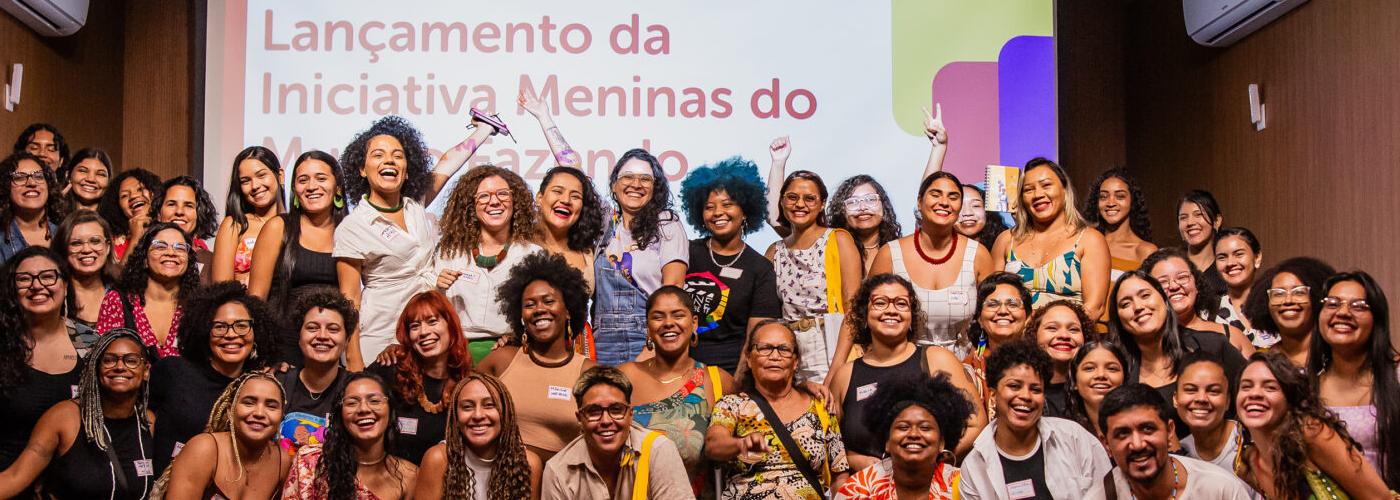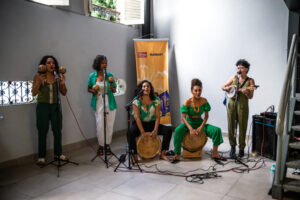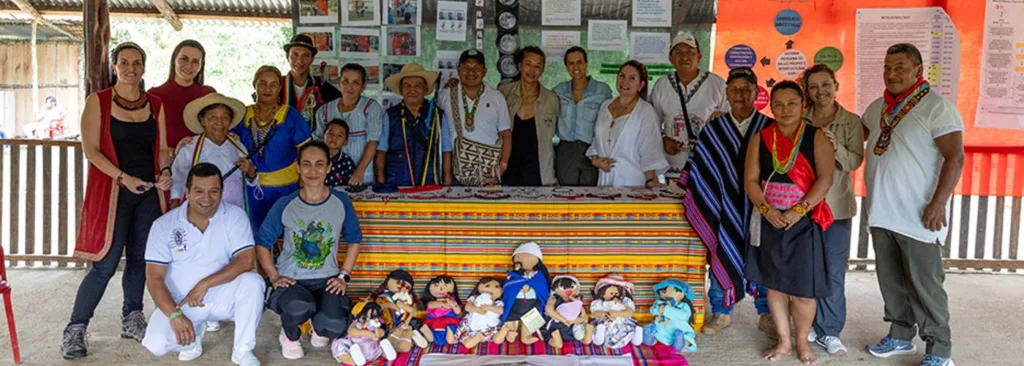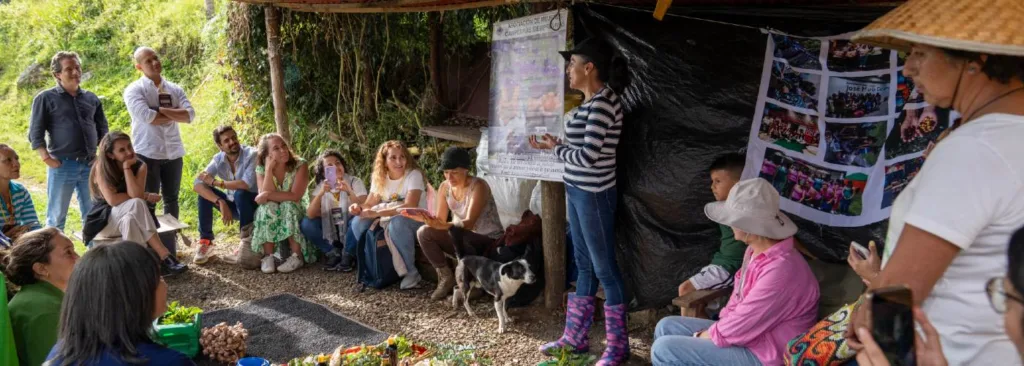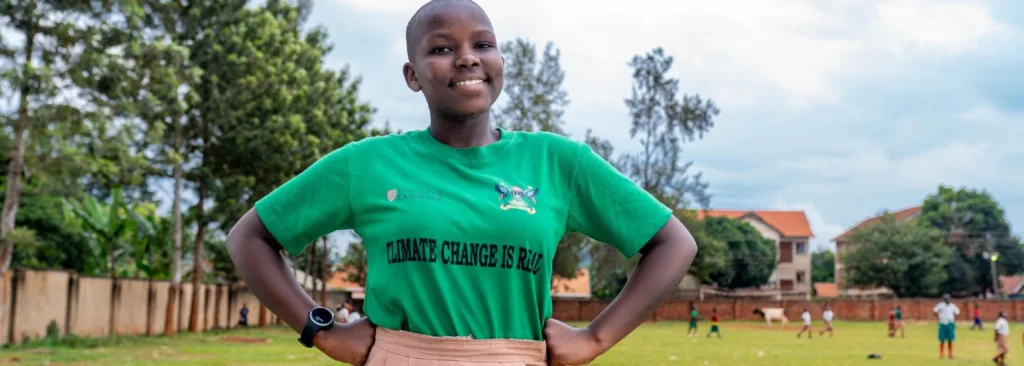Preparing girls to occupy decision-making spaces is crucial not only for gender equality but also for climate justice. However, how can we connect the global discussion on the climate emergency with the activism of women in their territories? And how does environmental racism and climate injustice manifest in places like Belém and Rio de Janeiro? These questions were central to the launch event of the initiative “Global Girls Creating Changes – G2C2,” held in Belém do Pará, Brazil.
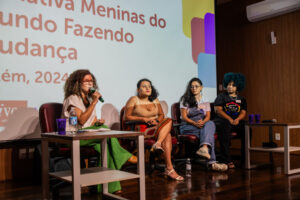
Organized by Hivos Latin America, in partnership with Mandí, over 80 people of different ages, backgrounds, genders, and fields of work gathered to learn about the project that aims to create a global network of girls committed to climate action in Brazil, Uganda, Nepal, and Indonesia.
Empowering girls for climate action and leadership
One of the premises of the G2C2 program, or MANAS (Meninas do Mundo Fazendo Mudanças) in Portuguese, is recognizing that, besides being the first and greatest victims of the climate crisis, women and girls are also fundamental agents of change for a more resilient world. Therefore, they must be empowered to manifest their full potential and lead fair climate actions in their territories. Through training, seed funding for projects, and exchanges with girls from different realities and countries, G2C2 will prepare young women and girls to effectively participate and influence local, national, and international climate-related forums.
The event featured strategic partners for the implementation of the G2C2 program in Brazil, such as Mandí, LabJaca, and Plataforma Cipó, as well as representatives of local movements and collectives, community leaders, civil society organizations, young activists, students, teachers, and local public officials. Former federal deputy and activist Vivi Reis contributed to the debate, emphasizing the urgency of more efficient public education policies, especially in the peripheral regions of Belém – the so-called “baixadas”.
Women and girls as agents of change
Analu Benchimol, a young resident of Terra Firme in Belém and a cultural producer, inspired the audience by sharing her experience as a social educator at Cine Clube TF, a cultural space that promotes youth leadership in cultural and artistic actions, reaffirming the social transformation potential of these territories. Mariana de Paula, Executive Director and co-founder of LabJaca, spoke about her organization’s work during the pandemic in the Jacarezinho favela, Rio de Janeiro, which was crucial in ensuring access to basic services for the local population. She provided a concrete example of a women-led organization that, from within the favela, develops solutions by and for the community.
In the coming months, Mandí and LabJaca will bring these learnings to 250 girls and young women and will announce the next steps of the G2C2 program and how the communities of Belém and Rio de Janeiro can get involved in the activities. Stay tuned to social media and be part of this transformation!

